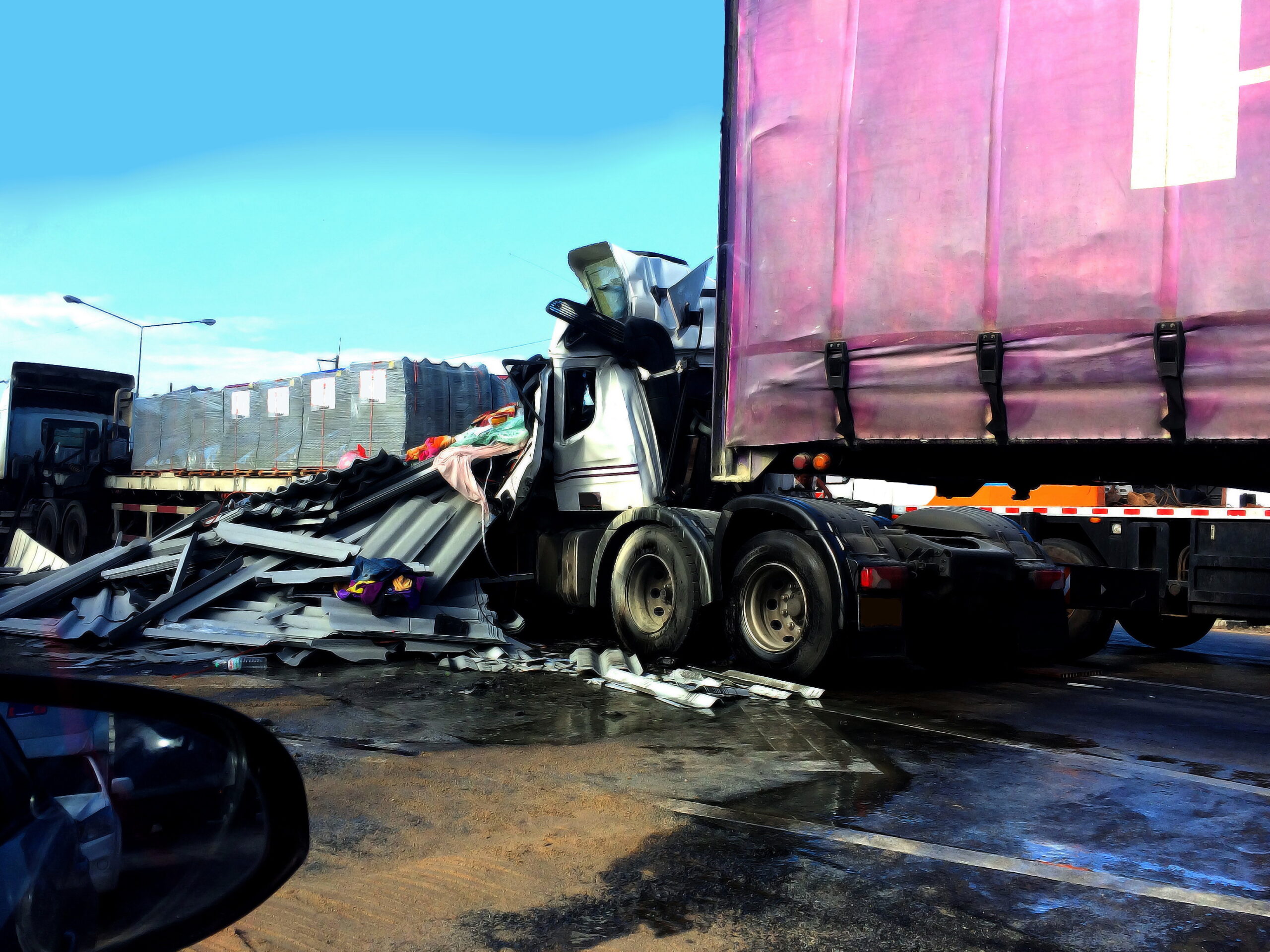How is Liability for a Truck Accident Determined?
Thousands of Canadians are seriously injured every year in collisions with large commercial trucks and buses. If you become a truck accident victim in Nova Scotia, promptly schedule a consultation with a Halifax truck accident lawyer to discuss your right to recover compensation.
How do investigators find out how a truck accident happened? How do they determine which parties are liable for truck accidents? How can you recover compensation for the injuries and losses you suffered in a truck collision?
How Do Black Boxes Help Accident Investigators?
After a truck accident, police and insurance investigators study the physical evidence (such as skid marks and damage to the vehicles), interview witnesses, review medical reports, and examine photos or videos of the crash. They also scrutinize the black box data.
“Black boxes” is the popular term for “Event Data Recorders”. A commercial truck’s black box captures details about the truck’s performance and the truck driver’s actions leading up to an accident. Black box data can help determine the cause of an accident and the extent of mechanical failures or driver negligence.
Black box data provides an objective account of a truck’s activity. It includes information about a truck’s speed, engine performance, brake applications, and even the steering angle. Black box data lets investigators piece together the sequence of events immediately before an accident.
Can Black Box Data Help Injured Truck Accident Victims?
By analyzing black box data, investigators can usually identify the reason for a truck accident and determine driver responsibility for the accident. The truck’s owner usually owns the data, but your Nova Scotia truck accident lawyer can petition the court for access to the data.
Black box data can show whether a truck driver made a mistake that caused an accident. It can support or challenge testimony provided by anyone involved in the accident. By clearly showing what occurred, it can promote out-of-court settlements and influence settlement amounts.
What Makes a Truck Collision So Devastating?
Truck accidents can be devastating for several reasons. A fully loaded truck may weigh forty or more tons, while most cars weigh about 3,000 pounds. A truck’s size, weight, and momentum make it difficult to stop. At highway speeds, trucks can do far more damage than automobiles.
Liability for a truck collision can extend beyond the truck driver to the trucking company, a cargo company, a leasing company, or even to a truck’s manufacturer.
If a truck’s tires or brakes were manufactured defectively, if a truck’s cargo was loaded improperly, or if a truck wasn’t adequately maintained, multiple defendants may share liability for a truck accident.
How Are Truck Accident Injury Claims Resolved?
If you’ve been injured in a truck collision in the Halifax area, a Halifax truck accident lawyer will review the details of the collision, identify the party or parties with liability, and negotiate a settlement on your behalf. Most truck accident injury claims are resolved outside of a courtroom.
After a truck accident, a victim must have a lawyer’s help immediately. Interviewing witnesses, compiling and examining evidence, and preparing for negotiations takes time. Your lawyer may subpoena a truck company’s maintenance records, a driver’s logbook, black box data, and other evidence.
If you aren’t offered a reasonable settlement in private negotiations, or if liability for the crash is in dispute, your truck accident lawyer will take your injury claim to trial, tell the court how (and how seriously) you were injured, and ask the court to order the defendant(s) to compensate you.
What Should You Do if You Are Involved in a Truck Collision?
After a truck accident, don’t sign any insurance company documents before speaking with a lawyer, and do not admit any fault. Instead, take the following steps to put yourself in the best legal position to prevail with a personal injury claim:
- Call for medical help and police assistance. That’s the paramount priority.
- Get the personal contact details and insurance information for all drivers involved.
- Get the name and contact details of the truck’s owner and the driver’s employer.
- Take photographs of damage to the vehicles, your visible injuries, and the accident scene.
- If eyewitnesses saw the accident, ask them for their names and contact details.
If you’re not treated at the scene or taken to a hospital, submit to a medical examination – if possible, within twenty-four hours – even if you feel perfectly healthy. An immediate medical examination is necessary in case you’ve sustained a latent or hard-to-detect injury.
When Should You Contact a Lawyer?
Photos, witness statements, and black box data are persuasive evidence in truck accident injury cases. If this evidence supports your injury claim, your truck accident lawyer can probably negotiate an acceptable out-of-court settlement and avoid taking your case to court.
Make and store copies of any documents generated by the accident: the police report, insurance paperwork, and medical records, bills, and receipts. The deadline for initiating a personal injury lawsuit arising from a truck crash in Nova Scotia is two years from the injury date, and only one year for the families of victims who died as a result of the accident.
Do not wait one year or even two years to contact a lawyer. Evidence deteriorates or disappears over time, and the memories of witnesses fade. As soon as you’ve been examined and treated for your injury, contact a Nova Scotia truck accident lawyer at McKiggan Hebert Lawyers.
Let McKiggan Hebert Lawyers Fight for the Justice You Need
How should you select a lawyer if you’re injured in a truck collision in Nova Scotia? Choose the award-winning team at McKiggan Hebert Lawyers. We have decades of experience representing and prevailing on behalf of the injured victims of negligence in Halifax and across Nova Scotia.
Injured negligence victims in Nova Scotia are entitled by law to compensation, but compensation is not automatic. You’ll need a lawyer who can prove that another party was negligent and can marshall the evidence to support your compensation claim. Contact McKiggan Hebert at 902-706-2298 to schedule a free case evaluation with no obligation.
Our team has recovered millions of dollars in compensation for our personal injury clients. If you move forward with a personal injury lawsuit, you will owe no fee to McKiggan Hebert Lawyers unless and until we recover your compensation with a negotiated settlement or a court decision.



